| Selo | Rock's Mills Press |
|---|---|
| Edição | 0 |
| Idioma | Inglês |
| Autores | Henry Smalley Sarson |
| Acabamento | Capa Comum |
| Quantidade de Páginas | 100 |
| Origem | Literatura Estrangeira |
 BraZineiras: o protagonismo feminino nos fanzines
BraZineiras: o protagonismo feminino nos fanzines
Timo
R$ 59,00 à vista Ifigênia em Áulis, As Fenícias, As Bacantes
Ifigênia em Áulis, As Fenícias, As Bacantes
Companhia das Letras
R$ 74,90 à vista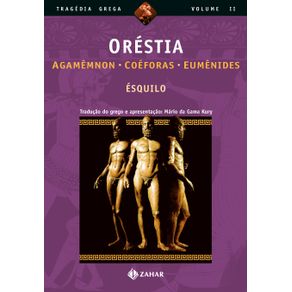 Oréstia - Agamêmnon, Coéforas, Eumênides
Oréstia - Agamêmnon, Coéforas, Eumênides
Companhia das Letras
R$ 74,90 à vista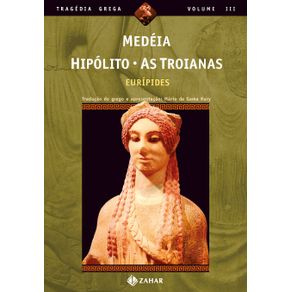 Medéia, Hipólito, As Troianas
Medéia, Hipólito, As Troianas
Companhia das Letras
R$ 74,90 à vista Tudo o que deixaram
Tudo o que deixaram
Simplíssimo
R$ 60,00 à vista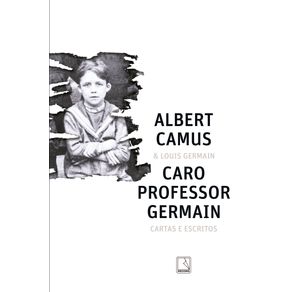 Caro professor Germain
Caro professor Germain
RECORD
R$ 59,90 à vista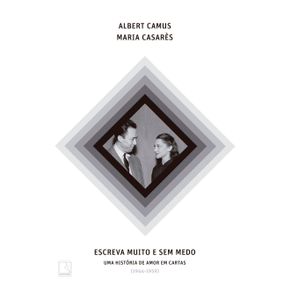 Escreva muito e sem medo
Escreva muito e sem medo
RECORD
R$ 299,90 ou até 3x sem juros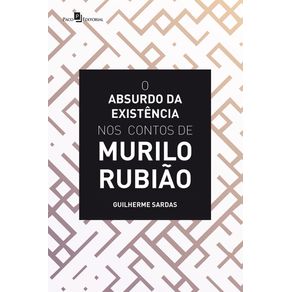 O absurdo da existência nos contos de Murilo Rubião
O absurdo da existência nos contos de Murilo Rubião
Paco Editorial
R$ 60,90 à vista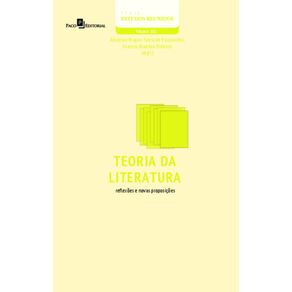 Teoria da literatura: reflexões e novas proposições
Teoria da literatura: reflexões e novas proposições
Paco Editorial
R$ 42,90 à vista a menina animada
a menina animada
TROINHA
R$ 78,00 à vista The Panda Bear and the Ant
The Panda Bear and the Ant
TROINHA
R$ 78,00 à vista A menina e o arco iris
A menina e o arco iris
TROINHA
R$ 78,00 à vista Contando com aquarela
Contando com aquarela
Asas Editora
R$ 74,00 à vista O ratinho espertalhão
O ratinho espertalhão
Baobá
R$ 30,00 à vista Minha Galera: The Party Is On
Minha Galera: The Party Is On
Simplíssimo
R$ 44,90 à vista Ifigênia em Áulis, As Fenícias, As Bacantes
Ifigênia em Áulis, As Fenícias, As Bacantes
Companhia das Letras
R$ 74,90 à vista Oréstia - Agamêmnon, Coéforas, Eumênides
Oréstia - Agamêmnon, Coéforas, Eumênides
Companhia das Letras
R$ 74,90 à vista Prometeu Acorrentado, Ájax, Alceste
Prometeu Acorrentado, Ájax, Alceste
Companhia das Letras
R$ 74,90 à vista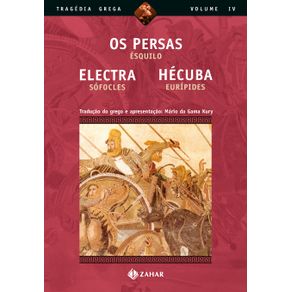 Os Persas, Electra, Hécuba
Os Persas, Electra, Hécuba
Companhia das Letras
R$ 74,90 à vista Box Um de Nós (2005)
Box Um de Nós (2005)
Galera
R$ 99,90 à vista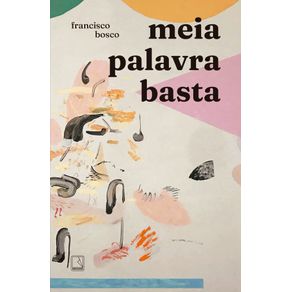 Meia palavra basta (1305)
Meia palavra basta (1305)
RECORD
R$ 54,90 à vista Heroísmo na singradura dos mares: histórias de naufrágios e epopeias nas conquistas ultramarinas portuguesas
Heroísmo na singradura dos mares: histórias de naufrágios e epopeias nas conquistas ultramarinas portuguesas
Paco Editorial
R$ 80,90 à vista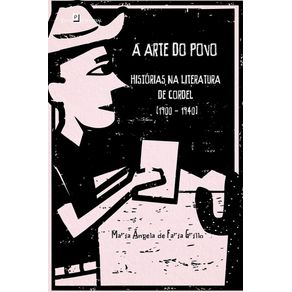 A arte do povo: histórias na literatura de cordel (1900 - 1940)
A arte do povo: histórias na literatura de cordel (1900 - 1940)
Paco Editorial
R$ 91,90 à vista Poéticas do tempo, da memória e da história: Ignácio de Loyola Brandão, escritas e cidades
Poéticas do tempo, da memória e da história: Ignácio de Loyola Brandão, escritas e cidades
Paco Editorial
R$ 91,90 à vista The Panda Bear and the Ant
The Panda Bear and the Ant
TROINHA
R$ 78,00 à vista O COLECIONADOR DE SONHOS
O COLECIONADOR DE SONHOS
TROINHA
R$ 78,00 à vista Contando com aquarela
Contando com aquarela
Asas Editora
R$ 74,00 à vista Diferença e alteridade na literatura do Espírito Santo: ensaios críticos
Diferença e alteridade na literatura do Espírito Santo: ensaios críticos
Calêndula
R$ 120,00 ou até 2x sem juros Infindável espiral de signos
Infindável espiral de signos
Calêndula
R$ 60,00 à vista Minha Galera: The Party Is On
Minha Galera: The Party Is On
Simplíssimo
R$ 44,90 à vista Ifigênia em Áulis, As Fenícias, As Bacantes
Ifigênia em Áulis, As Fenícias, As Bacantes
Companhia das Letras
R$ 74,90 à vista Oréstia - Agamêmnon, Coéforas, Eumênides
Oréstia - Agamêmnon, Coéforas, Eumênides
Companhia das Letras
R$ 74,90 à vista Prometeu Acorrentado, Ájax, Alceste
Prometeu Acorrentado, Ájax, Alceste
Companhia das Letras
R$ 74,90 à vista Entre Correntes: A Resistência Saga
Entre Correntes: A Resistência Saga
Simplíssimo
R$ 65,90 à vista Box Um de Nós (2005)
Box Um de Nós (2005)
Galera
R$ 99,90 à vista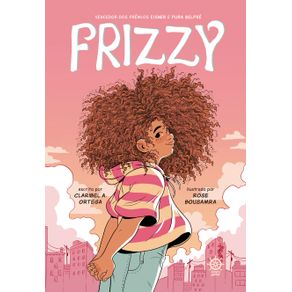 Frizzy (2005)
Frizzy (2005)
Galera Junior
R$ 69,90 à vista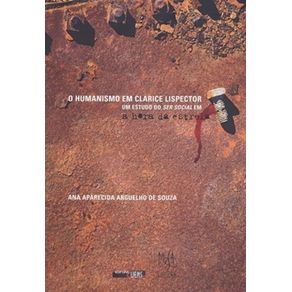 O Humanismo em Clarice Lispector
O Humanismo em Clarice Lispector
Musa
R$ 49,00 à vista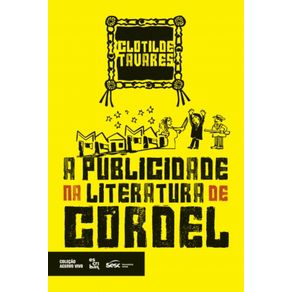 A Publicidade na literatura de cordel
A Publicidade na literatura de cordel
Escribas
R$ 50,00 à vista Heroísmo na singradura dos mares: histórias de naufrágios e epopeias nas conquistas ultramarinas portuguesas
Heroísmo na singradura dos mares: histórias de naufrágios e epopeias nas conquistas ultramarinas portuguesas
Paco Editorial
R$ 80,90 à vista Artes, mídias e outras literaturas
Artes, mídias e outras literaturas
Paco Editorial
R$ 133,90 ou até 2x sem juros Memórias de vida: poesia e prosa
Memórias de vida: poesia e prosa
Paco Editorial
R$ 39,90 à vista Teoria da literatura: reflexões e novas proposições
Teoria da literatura: reflexões e novas proposições
Paco Editorial
R$ 42,90 à vista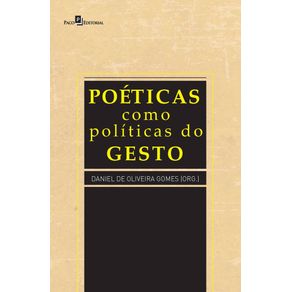 Poéticas como políticas do gesto
Poéticas como políticas do gesto
Paco Editorial
R$ 88,90 à vista MEU BARQUINHO DE PAPEL
MEU BARQUINHO DE PAPEL
TROINHA
R$ 78,00 à vista Minha Galera: The Party Is On
Minha Galera: The Party Is On
Simplíssimo
R$ 44,90 à vista